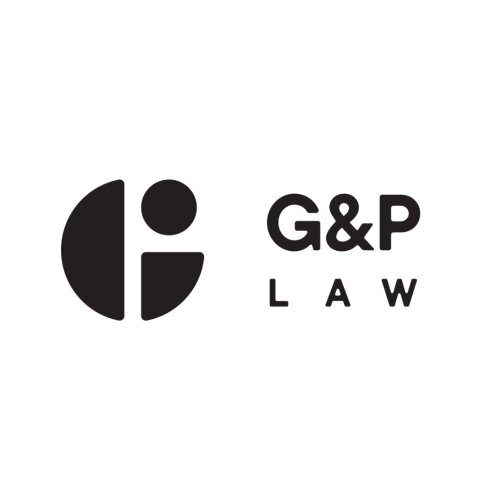Best Private Equity Lawyers in Bulgaria
Share your needs with us, get contacted by law firms.
Free. Takes 2 min.
Or refine your search by selecting a city:
List of the best lawyers in Bulgaria

About Private Equity Law in Bulgaria
Private equity involves investing in private companies or public companies with the intention of delisting them from stock exchanges to restructure, grow, and eventually sell at a profit. In Bulgaria, private equity has become increasingly significant as the country’s business sector matures, opening attractive opportunities for both foreign and local investors. The legal framework for private equity in Bulgaria is shaped by both local legislation and European Union regulations, ensuring transparency, investor protection, and compliance with global standards. Private equity transactions in Bulgaria typically involve various stages, such as deal structuring, due diligence, negotiations, drafting of contracts, and regulatory compliance.
Why You May Need a Lawyer
Private equity investments can be complex, involving multiple layers of legal and financial risk. Common situations where you may require legal help include:
- Structuring and negotiating private equity deals
- Conducting due diligence on target companies
- Drafting, reviewing, and amending investment agreements and shareholder agreements
- Securing regulatory approvals from Bulgarian authorities
- Managing disputes between stakeholders or with regulatory bodies
- Ensuring compliance with local and EU regulations
- Assisting with cross-border transactions or joint ventures
- Facilitating exit strategies, such as sales, buyouts, or IPOs
A lawyer with expertise in Bulgarian private equity law can safeguard your interests, minimize risks, and ensure the transaction complies with all applicable legal requirements.
Local Laws Overview
Several key aspects of Bulgarian law are particularly relevant for private equity transactions:
- Commercial Act: Governs the formation, management, and dissolution of companies in Bulgaria. This is fundamental for private equity, as it outlines shareholder rights, transfer of shares, and company governance.
- Law on Public Offering of Securities: Applies if the target company is public. It regulates takeovers, disclosure obligations, and delisting procedures.
- Foreign Investments Act: Regulates foreign direct investments and ensures protection of investor rights, while also providing transparency requirements.
- Competition Protection Act: Addresses issues around mergers, acquisitions, and other transactions that may affect market competition or require clearance from the Bulgarian Commission for Protection of Competition.
- Tax Legislation: Sets the rules for corporate taxation, capital gains, and double taxation treaties, especially important for structuring and evaluating the profitability of private equity investments.
- Employment Law: Relevant in cases involving restructuring or workforce changes following an acquisition.
- EU Regulations: Many aspects of Bulgarian private equity are affected by European Union directives and regulations on financial markets, anti-money laundering, and cross-border mergers and acquisitions.
Frequently Asked Questions
What is private equity and how does it function in Bulgaria?
Private equity refers to investing in private companies or taking public companies private, usually with the intention of improving their value and eventually selling them for profit. In Bulgaria, this sector is regulated to ensure transparency and protect investors.
Can foreign investors participate in private equity deals in Bulgaria?
Yes, Bulgaria welcomes foreign investment in private equity. There are few restrictions, but compliance with anti-money laundering, tax, and competition regulations is mandatory.
What are the typical legal risks in private equity transactions?
Risks include misrepresentations during due diligence, unresolved liabilities, regulatory compliance issues, and disputes among stakeholders. Legal advice helps mitigate these risks.
What due diligence is required before investing in a Bulgarian company?
Due diligence involves reviewing financial statements, legal structure, contracts, intellectual property, employment matters, debts, and potential legal liabilities of the target company.
Are there restrictions on repatriating profits from private equity investments?
There are no significant restrictions on repatriating profits, provided all tax obligations are met. Double taxation treaties may apply, reducing withholding taxes for foreign investors.
What regulatory approvals are necessary for private equity deals?
Depending on the size and nature of the transaction, approvals may be required from the Commission for Protection of Competition, the Financial Supervision Commission, or other sector-specific regulators.
How is a private equity exit normally structured in Bulgaria?
Common private equity exit strategies include trade sales, secondary sales, management buyouts, or public listings (IPOs). Each option involves distinct legal steps and documentation.
What protections do minority shareholders have?
Bulgarian law and shareholder agreements can provide minority shareholders with specific rights, such as tag-along rights, veto rights, and access to information, protecting them from unfair practices.
How does corporate governance work in Bulgarian companies?
Corporate governance is primarily outlined in the Commercial Act and company bylaws. This covers the structure of management, board duties, shareholder meetings, and reporting requirements.
What are the key tax considerations in private equity?
Tax considerations include corporate tax rates, capital gains tax, withholding tax on dividends, and the potential application of double taxation treaties. Proper structuring is essential to optimize tax efficiency.
Additional Resources
If you are seeking further information or support, the following organizations and governmental bodies may be helpful:
- Bulgarian Chamber of Commerce and Industry
- Bulgarian Small and Medium Enterprises Promotion Agency
- Bulgarian Investment Agency
- Commission for Protection of Competition
- Financial Supervision Commission
- Bulgarian Private Equity and Venture Capital Association
- Ministry of Economy of the Republic of Bulgaria
- National Revenue Agency (for tax matters)
Your lawyer may also guide you to specific private equity associations or networks suitable for your business goals.
Next Steps
If you are considering investing in or engaging with private equity in Bulgaria, it is important to seek legal advice early. Here are the recommended steps:
- Identify your objectives and desired outcomes for the investment or transaction.
- Consult a qualified Bulgarian lawyer with expertise in private equity and M&A matters.
- Gather all relevant documentation concerning your intended investment, partnership, or target company.
- Discuss your lawyer’s proposed due diligence and structuring options to tailor the process to your needs.
- Ensure compliance with all local and European regulations throughout the transaction.
- Stay informed about your legal rights and obligations at every stage of the process.
Taking these steps with the support of a legal professional will help ensure your private equity venture in Bulgaria is structured effectively and in compliance with the law.
Lawzana helps you find the best lawyers and law firms in Bulgaria through a curated and pre-screened list of qualified legal professionals. Our platform offers rankings and detailed profiles of attorneys and law firms, allowing you to compare based on practice areas, including Private Equity, experience, and client feedback.
Each profile includes a description of the firm's areas of practice, client reviews, team members and partners, year of establishment, spoken languages, office locations, contact information, social media presence, and any published articles or resources. Most firms on our platform speak English and are experienced in both local and international legal matters.
Get a quote from top-rated law firms in Bulgaria — quickly, securely, and without unnecessary hassle.
Disclaimer:
The information provided on this page is for general informational purposes only and does not constitute legal advice. While we strive to ensure the accuracy and relevance of the content, legal information may change over time, and interpretations of the law can vary. You should always consult with a qualified legal professional for advice specific to your situation.
We disclaim all liability for actions taken or not taken based on the content of this page. If you believe any information is incorrect or outdated, please contact us, and we will review and update it where appropriate.
Browse private equity law firms by city in Bulgaria
Refine your search by selecting a city.















